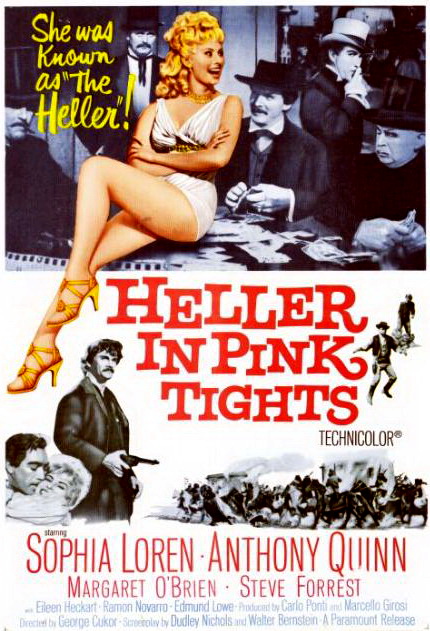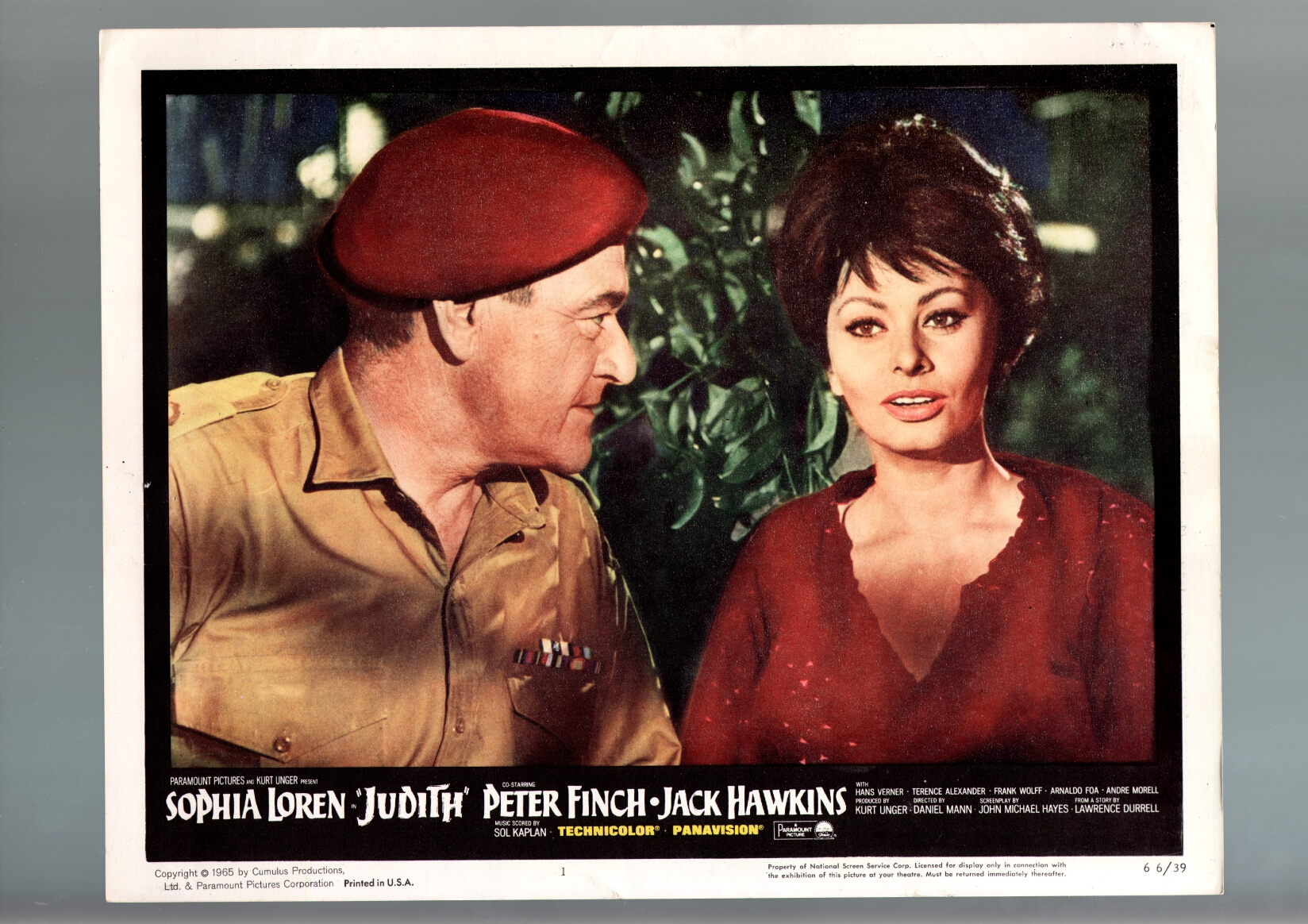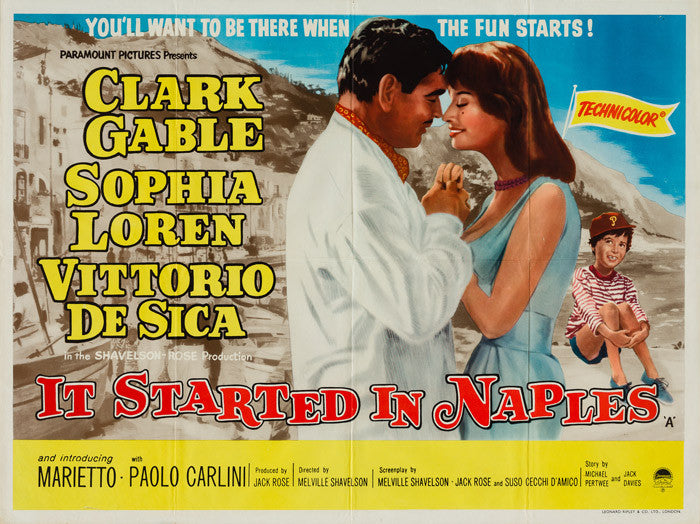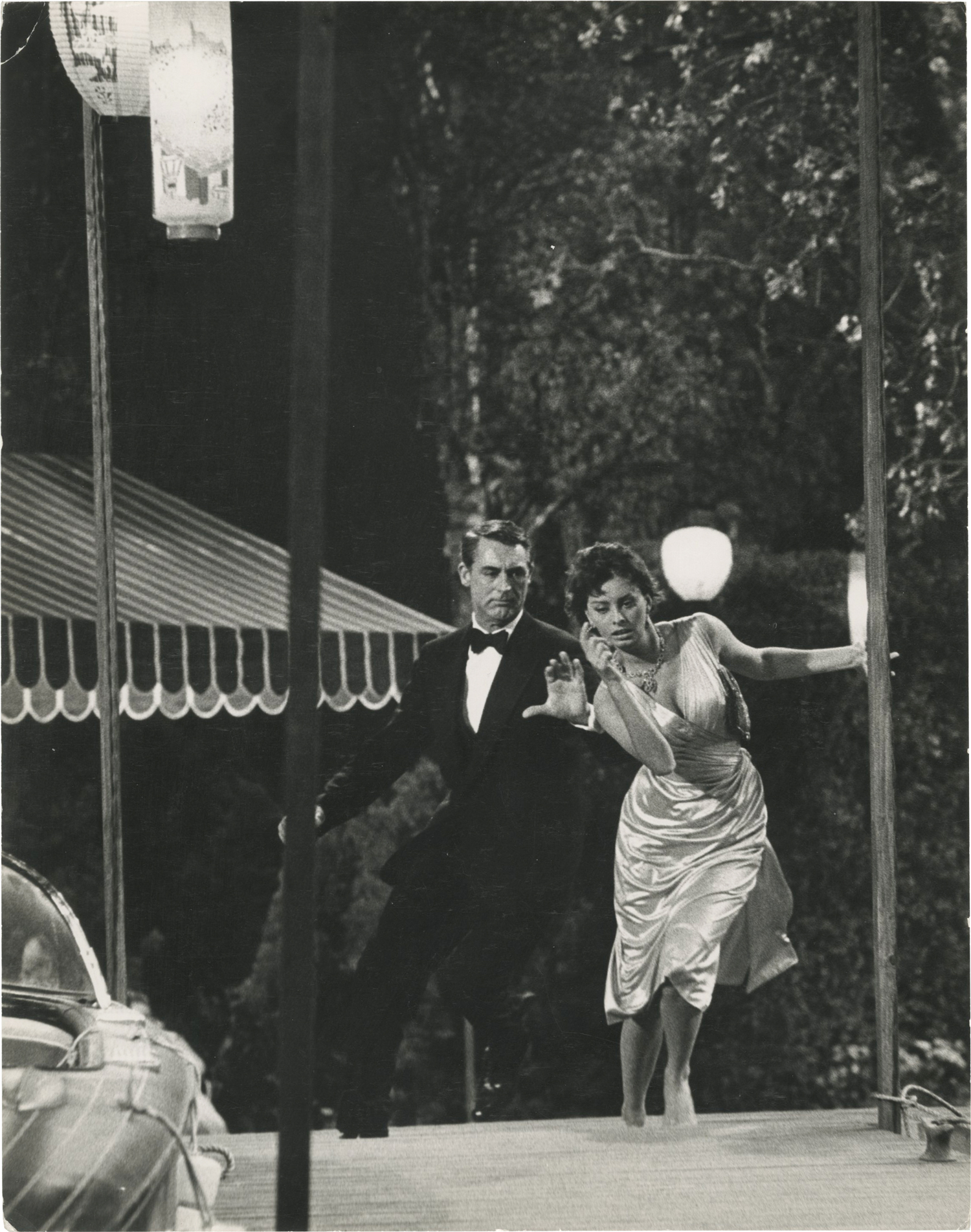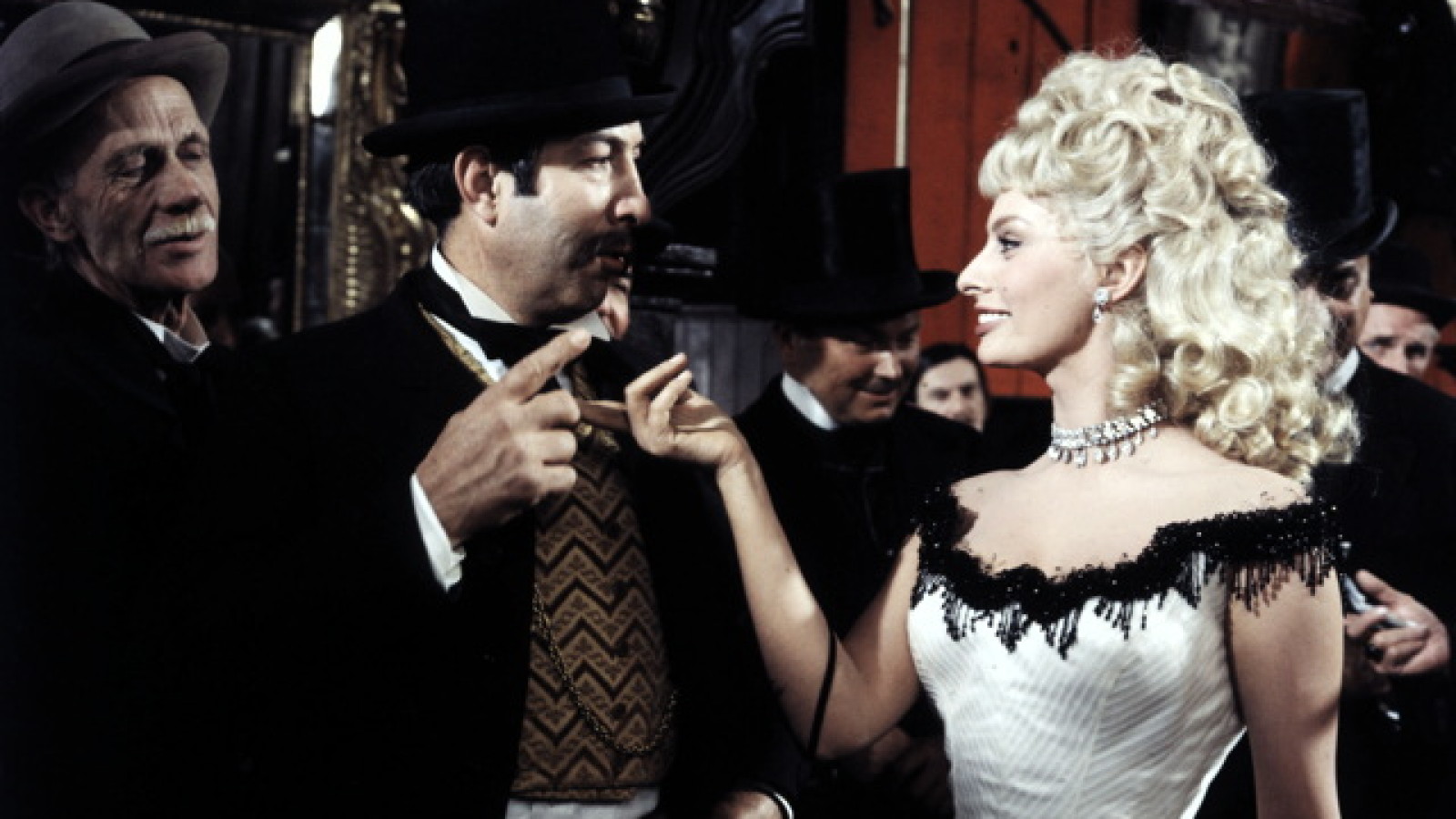Legend of the Lost (1957)
Legend of the Lost 1957
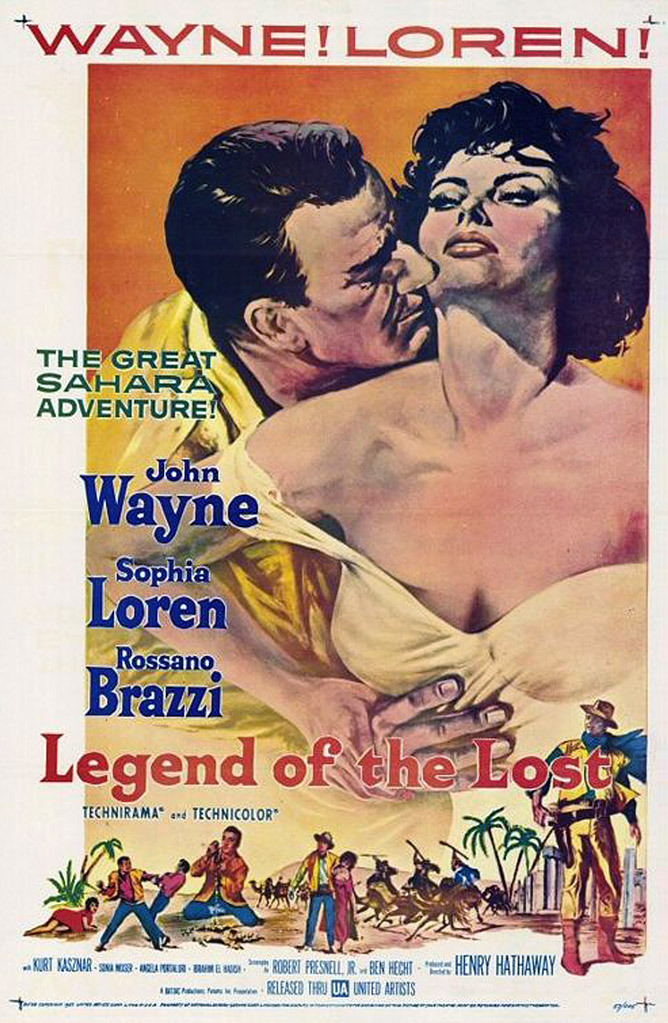
Legend of the Lost is a 1957 Italian-American adventure film produced and directed by Henry Hathaway, shot in Technirama and Technicolor by Jack Cardiff, and starring John Wayne, Sophia Loren, and Rossano Brazzi. The location shooting for the film took place near Tripoli, Libya

Paul Bonnard arrives in Timbuktu in search of a guide to escort him into the Sahara desert. American Joe January takes the job despite misgivings about Bonnard’s plans. Dita, a prostitute who has been deeply moved by what appears to be Bonnard’s spiritual nature, follows the two men into the desert
Eventually the trio arrives in the ruins of a lost city, where Bonnard hopes to find the treasure his father sought years earlier before disappearing. But what Bonnard finds alters him in unexpected ways, with tragic results
Full Cast
John Wayne …. Joe January
Sophia Loren …. Dita
Rossano Brazzi …. Paul Bonnard
Kurt Kasznar …. Prefect Dukas
Sonia Moser …. Girl
Angela Portaluri …. Girl
Ibrahim El Hadish …. Galli Galli
Marsha Hunt …. (uncredited)
Legend of the Lost (1957)
Legend of the Lost (1957)
Judith (1966)
Judith 1966

Judith is a 1966 drama film made by Command Productions, Cumulus Productions and Paramount Pictures. It was directed by Daniel Mann and produced by Kurt Unger from a screenplay by John Michael Hayes, based on the story by Lawrence Durrell. The music score was by Sol Kaplan and the cinematography by John Wilcox
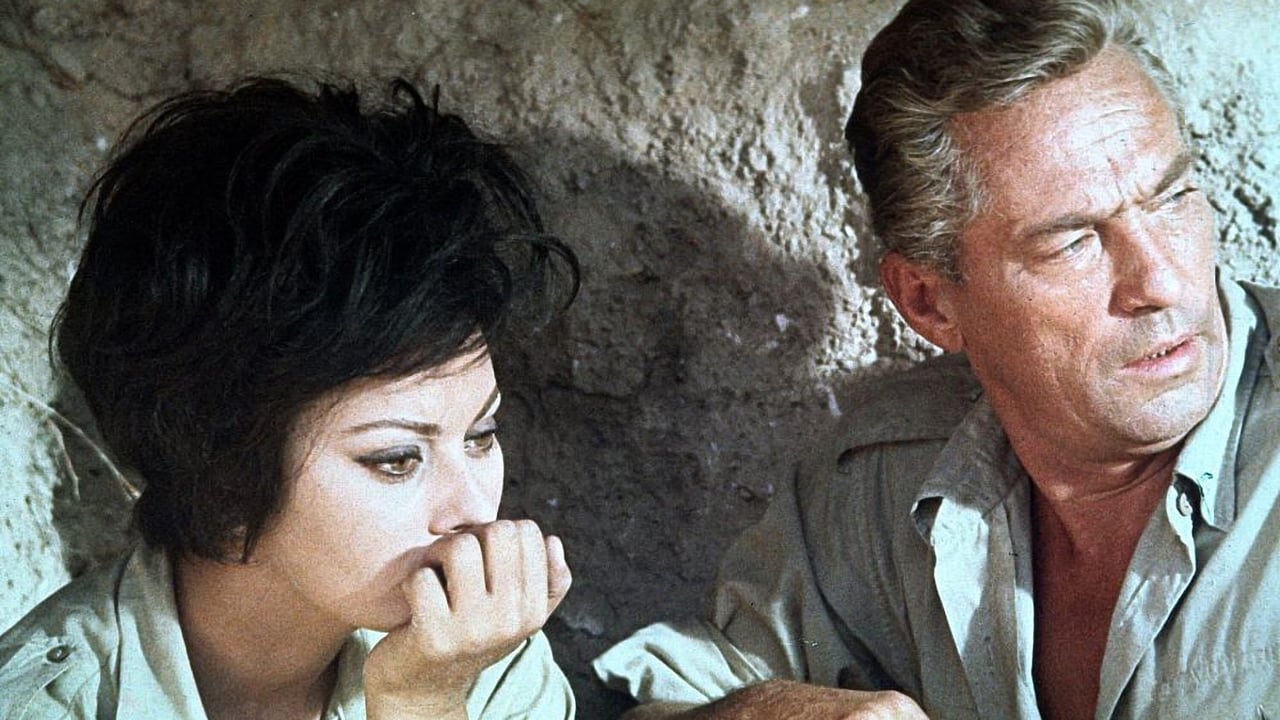
The film stars Sophia Loren, Peter Finch and Jack Hawkins
This is why you hire Sophia Loren. In the middle of a complicated story she provides the emotional anchor.. And she can do it without words. A few close-ups are all you need to guess at her inner turmoil in a world where, as with Play Dirty (1968), the individual is disposable. The good guys here, Israelis fighting for survival at the rebirth of their country, are every bit as ruthless as the commanding officers in the World War Two picture
And it’s just as well because the tale is both straightforward and overly complex. Like Cast a Giant Shadow, out the same year, or the earlier Exodus (1961), it’s about the early migrants staving off Arab attempts to destroy the tenuous foothold Jewish immigrants on the land with the British, stuck in the role of maintaining law and order, cracking down on illegal landings of refugees and arms smuggling. But where the earlier movies take the war to the enemy, this is all about defence, holding on to hard-won positions
Israeli leader Aaron (Peter Finch) discovers General Schiller (Hans Verner), a former German WW2 commander wanted for war crimes, currently in charge of the Arab tank regiment, is planning imminent assault. After locating Schiller’s wife Judith (Sophia Loren), he smuggles her into Israel with the intention of using her as bait to kidnap the general
Judith (1966)
Judith (1966)
It Started in Naples 1960
It Started in Naples 1960
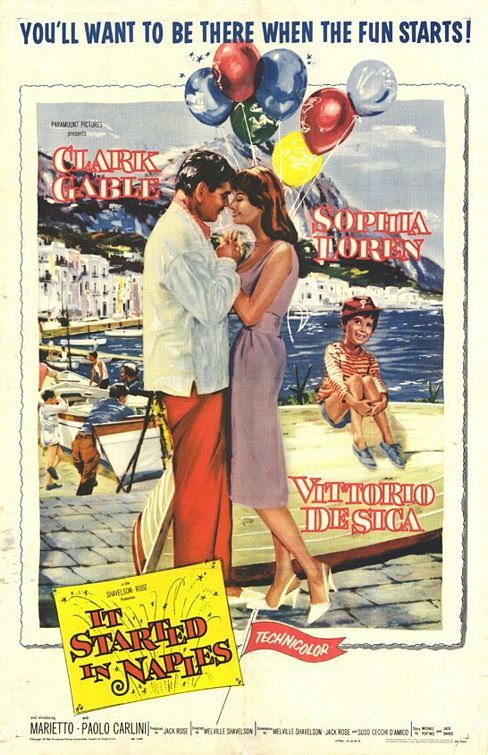
It Started in Naples is a 1960 American romantic comedy film directed by Melville Shavelson and produced by Jack Rose from a screenplay by Suso Cecchi d’Amico, based on the story by Michael Pertwee and Jack Davies. The Technicolor cinematography was directed by Robert Surtees. The film stars Clark Gable, Sophia Loren, Vittorio De Sica and an Italian cast. This was Gable’s final film to be released within his lifetime and his last film in color

Hal Pereira, Roland Anderson, Samuel M. Comer and Arrigo Breschi were nominated for an Oscar for its art direction
The film was released by Paramount Pictures on August 7, 1960
1960) Uptight Philly lawyer Clark Gable, in Italy to team up with roving-eyed Vittorio de Sica to settle his black sheep brother’s estate, finds he’s an uncle. And illegitimate Marietto is now an impish street kid looked after by his night club thrush aunt Sophia Loren. With dazzling scenery – Italy’s and Loren’s – and her classic song “You Want to be Americano.” 35mm Technicolor print courtesy UCLA Film & Television Archive. Approx. 100 min
It Started in Naples (1960)
Houseboat 1958
Houseboat 1958

Houseboat is a 1958 American romantic comedy film directed by Melville Shavelson. The songs, “Almost In Your Arms” sung by Sam Cooke, and “Bing! Bang! Bong!”, sung by Sophia Loren, were written by Jay Livingston and Ray
Evans. It was presented in Technicolor and VistaVision

Starring Cary Grant, Loren, Martha Hyer and Harry Guardino, the film was written by Shavelson and Jack Rose on the basis of an original script by Grant’s wife at the time, Betsy Drake. It was released on November 19, 1958
Houseboat (1958)
Grumpier Old Men 1995
Grumpier Old Men 1995
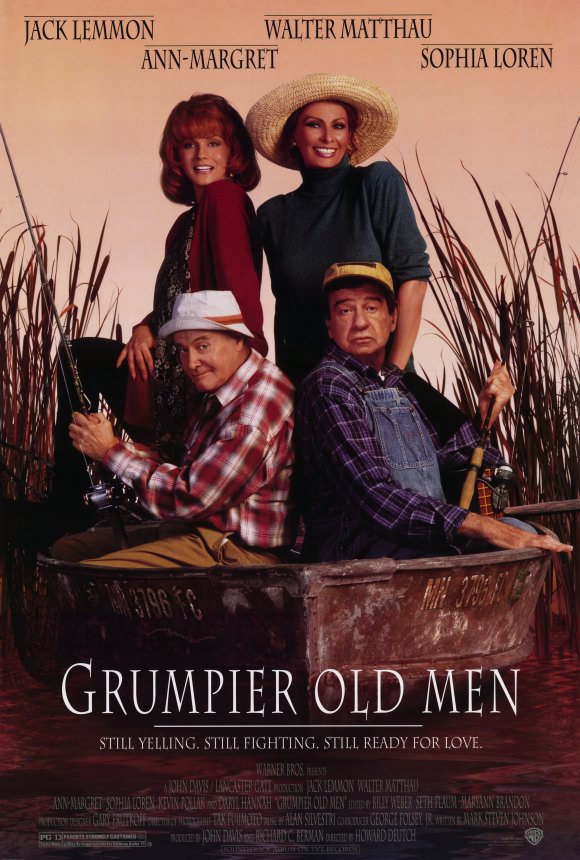
Grumpier Old Men is a 1995 American romantic comedy film, and a sequel to the film Grumpy Old Men. It stars Jack Lemmon, Walter Matthau, Ann-Margret, Sophia Loren, Burgess Meredith (in his final film role), Daryl Hannah, Kevin Pollak, Katie Sagona, and Ann Morgan Guilbert
Director: Howard DeutchCast: Jack Lemmon, Walter Matthau, Ann-Margret, Sophia Loren, Kevin Pollak, Daryl Hannah, Burgess MeredithScreenplay: Mark Steven JohnsonCinematography: Tak FujimotoMusic: Alan SilvestriU.S. Distributor: Warner Brothers
Run Time: 1:35U.S. Release Date: 1995-12-22MPAA Rating: “PG” (Profanity)Genre: COMEDYSubtitles: noneTheatrical Aspect Ratio: 1.85:1
Grumpier Old Men was directed by Howard Deutch, with the screenplay written by Mark Steven Johnson and the original music score composed by Alan Silvestri. Meredith developed Alzheimer’s disease and had to be coached through his role in the film. He died in 1997
Grumpier Old Men (1995)
Grumpier Old Men (1995)
Heller in Pink Tights 1960
Heller in Pink Tights
